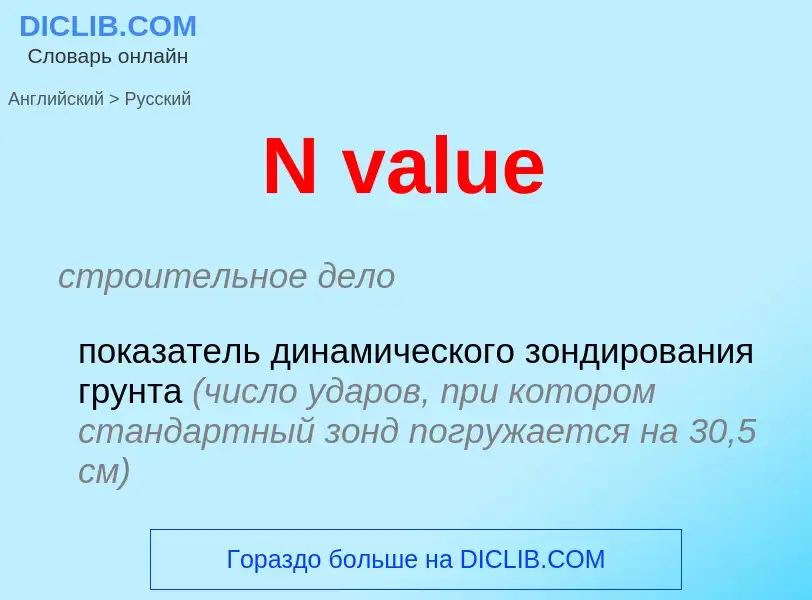Vertaling en analyse van woorden door kunstmatige intelligentie ChatGPT
Op deze pagina kunt u een gedetailleerde analyse krijgen van een woord of zin, geproduceerd met behulp van de beste kunstmatige intelligentietechnologie tot nu toe:
- hoe het woord wordt gebruikt
- gebruiksfrequentie
- het wordt vaker gebruikt in mondelinge of schriftelijke toespraken
- opties voor woordvertaling
- Gebruiksvoorbeelden (meerdere zinnen met vertaling)
- etymologie
N value - vertaling naar russisch
строительное дело
показатель динамического зондирования грунта (число ударов, при котором стандартный зонд погружается на 30,5 см)
[en]
общая лексика
noun – имя существительное
существительное
общая лексика
14-я буква английского алфавита
употр. вместо имени или фамилии
математика
неопределённая величина
Definitie
Wikipedia

Value investing is an investment paradigm that involves buying securities that appear underpriced by some form of fundamental analysis. The various forms of value investing derive from the investment philosophy first taught by Benjamin Graham and David Dodd at Columbia Business School in 1928, and subsequently developed in their 1934 text Security Analysis.
The early value opportunities identified by Graham and Dodd included stock in public companies trading at discounts to book value or tangible book value, those with high dividend yields, and those having low price-to-earning multiples, or low price-to-book ratios.
High-profile proponents of value investing, including Berkshire Hathaway chairman Warren Buffett, have argued that the essence of value investing is buying stocks at less than their intrinsic value. The discount of the market price to the intrinsic value is what Benjamin Graham called the "margin of safety". For 25 years, under the influence of Charlie Munger, Buffett expanded the value investing concept with a focus on "finding an outstanding company at a sensible price" rather than generic companies at a bargain price. Hedge fund manager Seth Klarman has described value investing as rooted in a rejection of the efficient-market hypothesis (EMH). While the EMH proposes that securities are accurately priced based on all available data, value investing proposes that some equities are not accurately priced.
Graham never used the phrase value investing – the term was coined later to help describe his ideas and has resulted in significant misinterpretation of his principles, the foremost being that Graham simply recommended cheap stocks. The Heilbrunn Center at Columbia Business School is the current home of the Value Investing Program.


 portrait on 23 March 1950.jpg?width=200)
